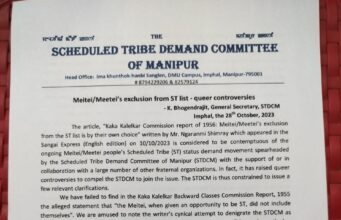As a first of its kind service, the electronic Know Your Customer (e-KYC) service of the Unique Identification Authority of India (UIDAI) is transforming the entire KYC process by making it paperless, instantaneous, secure, economical and non-repudiable. The UIDAI expects its e-KYC service to enhance customer convenience and greatly increase business efficiency across sectors that require proof of identity and address to open customer accounts. Not only will this service streamline the process of on-boarding new customers but it will also simplify the process of linking existing customer accounts to their respective Aadhaar numbers in an easy yet secure manner.
The Ministry of Finance, Government of India, has already recognized e-KYC as a valid document for all financial services under the Prevention of Money Laundering (PML) Rules. The UIDAI is working with sector regulators for extending e-KYC to their respective sectors.
The e-KYC service will extend the power and convenience of Aadhaar KYC to paperless transactions. Using the e-KYC service, residents can authorize the UIDAI to release their KYC data to a service provider. This authorization can either be done in person (through biometric authentication), or it can be done online (through OTP authentication). Upon successful authentication and consent of the resident, the UIDAI will provide the resident’s name, address, date of birth, gender, photograph, mobile number (if available), and email address (if available) to the service provider electronically.’
Salient features of the Aadhaar e-KYC service
1. Paperless: The service is fully electronic, and document management can be eliminated;
2. Consent based: The KYC data can only be provided upon authorization by the resident through Aadhaar authentication, thus protecting resident privacy;
3. Eliminates Document Forgery: Elimination of photocopies of various documents that are currently stored in premises of various stakeholders reduces the risk of identity fraud and protects resident identity. In addition, since the e-KYC data is provided directly by UIDAI, there is no risk of forged documents;
4. Inclusive: The fully paperless, electronic, low-cost aspects of e-KYC make it more inclusive, enabling financial inclusion;
5. Secure and compliant with the IT Act: Both end-points of the data transfer are secured through the use of encryption and digital signature as per the Information Technology Act, 2000 making e-KYC document legally equivalent to paper documents. In addition, the use of encryption and digital signature ensures that no unauthorized parties in the middle can tamper or steal the data;
6. Non-repudiable: The use of resident authentication for authorization, the affixing of a digital signature by the service provider originating the e-KYC request, and the affixing of a digital signature by UIDAI when providing the e-KYC data makes the entire transaction non-repudiable by all parties involved;
7. Low cost: Elimination of paper verification, movement, and storage reduces the cost of KYC to a fraction of what it is today;
8. Instantaneous: The service is fully automated, and KYC data is furnished in real-time, without any manual intervention;
9. Machine Readable: Digitally signed electronic KYC data provided by UIDAI is machine readable, making it possible for the service provider to directly store it as the customer record in their database for purposes of service, audit, etc. without human intervention making the process low cost and error free; and
10. Regulation friendly: The service providers can provide a portal to the Ministry/Regulator for auditing all e-KYC requests.
Benefits of e-KYC
Resident Benefits
1. http://1.id/The ID document is on person and thus there is no need to carry documents/Cards.
2. No need to leave behind photo copies- possibility of ID theft eliminated.
3. Inclusion through a digital ID for all.
4. Instant gratification – no need to fetch ID documents, immediate on line authentication and service activation.
5. Go Green- no paper, no wastage.
6. Common ID for multiple purposes- government
benefits, travel, telecom, LPG and Financial Services.
7. Consent Based release of ID resident in full control of sharing ID.
Benefits to Service providers
1. No paper work- need for photo copy, preservation of physical copy and conversion to digital copy averted.
2. Cost Saving from elimination of collecting and preserving paper copies.
3. Improved Regulatory compliance- back end can monitor KYC fulfilment online.
4. Security enhanced- point to point data transfer from UIDAI server to service provider server eliminates data and ID theft.
5. Better sales conversion and customer satisfaction through on the spot ID verification and instant activation of services.
6. Innovation- instant products like ready to use pre-paid cards, on the spot Insurance Policy and ready to use SIM cards.
Benefits to Regulators
1. Standard KYC – Improved compliance with reduced front end discretion.
2. Real time analytic through Portal based KYC and service monitoring.
3. Expansion of authorised service provider domain supported by discretion free, digital KYC.
Aadhaar Factsheet
• ‘Aadhaar’ is a 12 digit individual identification number which serves as a proof of identity and address, anywhere in India.
• Any person, irrespective of his/her age or gender, who is an ordinary resident citizen of India, can enroll for Aadhaar free of cost and the unique Aadhaar number remains valid for life.
• Aadhaar identifies individuals uniquely on the basis of their demographic information and biometrics. It gives individuals the means to clearly establish their identity to public and private agencies across the country.
• The word ‘Aadhaar’ means foundation, therefore it is the base on which any delivery system can be built. Aadhaar can be used in any system which needs to establish the identity of a resident. Aadhaar can be used in the delivery of the following programs:
Food and Nutrition – Public Distribution System, Food Security, Mid Day Meals, Integrated Child Development Scheme
Employment – Mahatma Gandhi National Rural Employment Guarantee Scheme, Swarnajayanti Gram Swarozgar Yojana, Indira Awaaz Yojana, Prime Minister’s Employment Guarantee Program
Education – Sarva Shikhsha Abhiyaan, Right to Education
Inclusion and Social Security – Janani Suraksha Yojana, Development of Primitive Tribe Groups, Indira Gandhi National Old Age Pension Scheme
Healthcare – Rashtriya Swasthya Bima Yojana, Janashri Bima Yojana, Aam Aadmi Bima Yojana
• Other miscellaneous purposes including property transactions, voter ID, PAN card etc.
• Under the DBT scheme, the entitled monetary benefits under the identified schemes are transferred directly to the bank account of the beneficiaries, which are linked with the Aadhaar number. However at present, since many beneficiaries are still to be provided the Aadhaar card, the benefits are deposited to the bank accounts even without the Aadhaar number.
• Under DBT for LPG, all LPG consumers with Aadhaar numbers and whose bank accounts are linked to Aadhaar numbers are given an advance amount of Rs.435/- per cylinder booked, immediately on booking a cylinder. While the LPG cylinders will be supplied at the market price, the subsidy amount will be credited automatically in their accounts.
• Aadhaar is an important means of financial inclusion. With the Aadhaar card even poor people can easily establish their identity to banks for opening accounts. They can also carry it in the train journey as an identity proof.
• With Aadhaar cards seeded to their bank accounts, rural residents will be able to transact electronically with each other as well as with individuals and firms outside the village. This will reduce their dependence on cash.
• Once a general purpose Aadhaar enabled micropayment system is in place, a variety of other financial instruments such as micro credit, micro- insurance, micro-pensions and micro- mutual funds can be implemented on top of this payments system.
• The Aadhaar number has the property of being a globally unique address for every resident of India, for life. This property makes it attractive to use Aadhaar as a payment address.
• The Aadhaar e-KYC (Know your customer) service provides an instant, electronic proof of identity and proof of address along with date of birth and gender. In addition, it also provides the resident’s mobile number and email address to the service provider, which helps further streamline the process of service delivery
• Digitally signed electronic KYC data provided by UIDAI is machine readable, making it possible for the service provider to directly store it as the customer record in their database for purposes of service, audit, etc. without human intervention making the process low cost and error free
• The e-KYC service can be deployed for linking existing beneficiary records with Aadhaar numbers. Examples include linkage of existing Ration Cards, pension accounts, scholarships, etc. with Aadhaar. This has the twin benefit of achieving de-duplication and elimination of fakes and ghosts, while ensuring that the benefits reach the targeted beneficiaries. In cases where residents are applying for various Government-issued documents such as a Ration Card, Drivers’ license, Caste certificate, Passport, Birth certificate, etc., the e-KYC service can be used for efficient service delivery, based on quick and accurate identification of the person.
This PR is submitted by PIB-IMPHAL.











